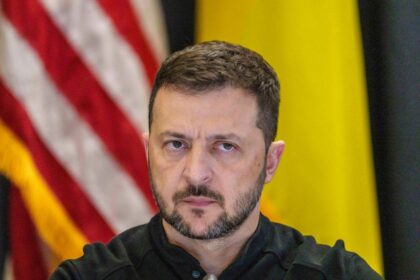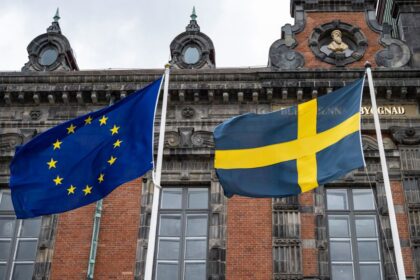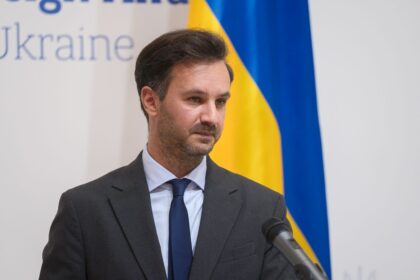**Most Hungarians Support Ukraine’s EU Membership, Despite Government Obstacles**
A recent poll conducted by the Republikon Institute has shown that a narrow majority of Hungarians support Ukraine’s accession to the European Union. The survey, which was published in the Hungarian newspaper Nepszava on April 7, found that 47% of respondents support Ukraine’s membership, while 46% oppose it. When undecided voters were excluded from the results, the margin shifted to 51% in favor and 49% against.
This is an interesting development considering Hungary’s close ties with Russia and its government’s long-standing opposition to Ukraine’s EU membership. Hungarian Prime Minister Viktor Orban has consistently obstructed sanctions against Moscow and military aid for Kyiv, while also opposing Ukraine’s accession to the bloc.
The poll results suggest that there are clear political divides on this issue in Hungary. Pro-government Fidesz-KDNP voters, who make up a large part of the ruling conservative alliance, overwhelmingly oppose membership (82%). On the other hand, voters of the centrist opposition movement Tisza and other opposition parties are more supportive, with 79% backing Ukraine’s accession overall.
It’s worth noting that among supporters of Ukraine’s EU membership in Hungary, only 15% expressed support for a fast-tracked accession process, which would potentially allow Ukraine to join within 3-4 years. This suggests that many Hungarians believe Ukraine should follow the standard procedures applied to other candidate countries, with a 7-10 year accession period.
Orban’s government has been accused of spreading anti-Ukrainian narratives through state-run media, using headlines such as “Even cholera has not completely disappeared in Ukraine” and “Ukraine’s EU accession could bring a pension disaster to Hungary.” The government also announced plans to hold a referendum on Ukraine’s EU membership, although no date has been set.
The poll results are significant because they suggest that public opinion in Hungary is more supportive of Ukraine’s EU membership than previously thought. This could put pressure on Orban’s government to reevaluate its stance on the issue and potentially lead to changes in Hungarian foreign policy.
**Commentary**
The findings of this poll are a welcome surprise, given Hungary’s close ties with Russia and the government’s opposition to Ukraine’s EU membership. The fact that most Hungarians support Ukraine’s accession suggests that public opinion is more supportive than previously thought.
It’s also interesting to note that among supporters of Ukraine’s EU membership in Hungary, many believe that Ukraine should follow standard procedures and not be fast-tracked into the bloc. This suggests that there is a growing recognition of the need for Ukraine to meet certain standards before joining the EU.
The poll results are likely to put pressure on Orban’s government to reevaluate its stance on Ukraine’s EU membership and potentially lead to changes in Hungarian foreign policy. As the European Union continues to grapple with the challenges posed by Russia’s aggression, it’s essential that Hungary plays a constructive role in support of Ukraine’s bid for membership.
**Deeper Analysis**
The findings of this poll highlight the complexities of public opinion on issues related to EU membership and Russian aggression. While most Hungarians support Ukraine’s accession, there are clear political divides on this issue within the country.
The fact that pro-government Fidesz-KDNP voters overwhelmingly oppose membership suggests that there is a strong ideological divide on this issue in Hungary. On the other hand, voters of the centrist opposition movement Tisza and other opposition parties are more supportive, indicating that there may be growing recognition of the need for Ukraine to meet certain standards before joining the EU.
The poll results also highlight the importance of public opinion in shaping foreign policy decisions. As the European Union continues to grapple with the challenges posed by Russia’s aggression, it’s essential that governments prioritize the views and concerns of their citizens.
Ultimately, the findings of this poll suggest that there is a growing recognition among Hungarians of the need for Ukraine to join the EU, but also highlight the complexities and nuances involved in shaping public opinion on issues related to European integration and Russian aggression.












